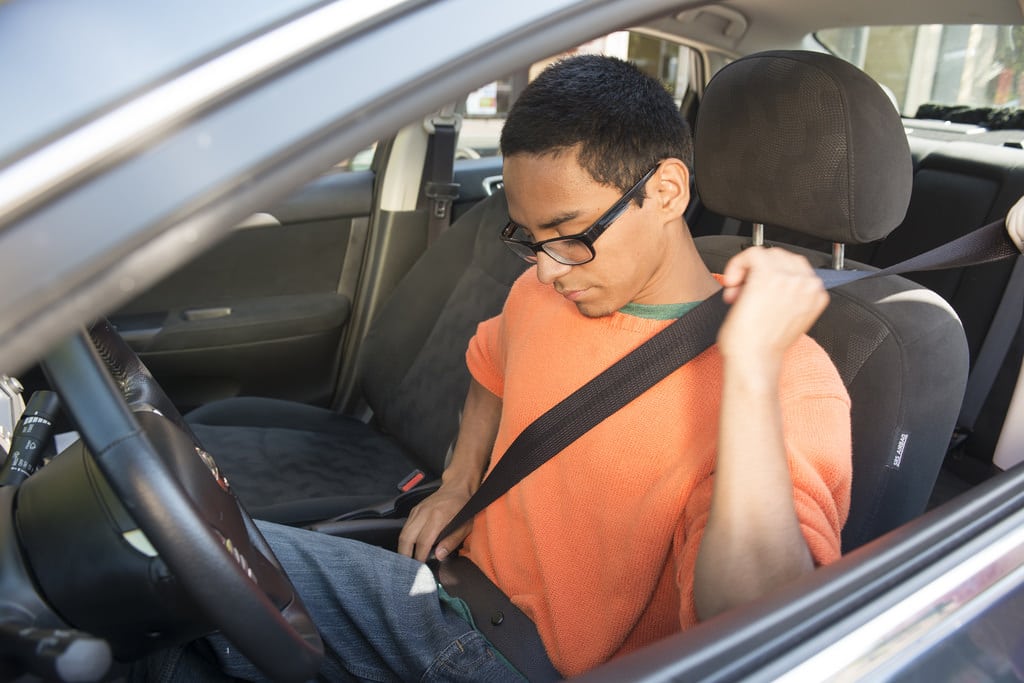They grow up so quick, don’t they? It seems like only yesterday you were bouncing them on your lap and they were using your shoulders, nose and kneecaps as ramps from which to launch their toy cars. You smiled to yourself and tried to suppress your sheer parental joy as they navigated the tiny matchbox vehicles around the living room, making “brummm, brummm” noises as they went. But before we know it, the years have melted away and they’ve grown up and learned to drive themselves. They’re no longer in control of little matchbox cars, but the real thing… Let’s just hope that they don’t go launching them off any nose shaped chasms! When you have teenage kids, you accept it as an inevitability that some day soon they will want their own car.
Your teenage years are pretty far off in your rear-view mirror but you remember vividly that feeling of freedom and independence that you felt behind the wheel of your first vehicle. Ah, your first car. You remember it so well. That rusty bucket of bolts that somehow managed to limp through it’s MOT year after year. The suspension creaked, it belched blue exhaust fumes from its rear and when you revved the engine it sounded like the world was coming to an end… And how you loved it! But when it comes to buying your teenage kids’ first car, you want them to have better than you did (such is a parent’s wont). You want the peace of mind to know that they’re safe, but you don’t want them to get taken for a ride, either. Here we’ll look at some practical tips when helping your teen to buy their first car; what to look for and the red flags for which you should teach them to be alert..
Remember; the shopping process is every bit as instructive as your choice of car
Maybe you’re buying the car outright for them as a gift. Maybe you’re matching their contributions towards the vehicle’s cost or maybe they want to pay for it themselves (what better way to demonstrate their independence) but would appreciate your help in knowing what to look for in a starter car. However the vehicle is being paid for, the process of shopping for it is instructive and almost as important as the choice of car itself. Buying your first car is always a head scratcher, whatever your age and for a teenager the process can be extra bamboozling. They will look to you to and expect you to model how they should compose themselves, what questions to ask and what to look for, even if they don’t show this outwardly. Thus, the advice you give them on this trip will likely define their car-buying behavior for life…
It all starts online
Whether you’re looking for something new or used, it’s a good idea to have a clear notion of the type of vehicle you’re looking for before you even set foot on a car lot. This means working with your son or daughter to ascertain their needs and what they want from a car. It behooves them (and you) to look at how pricing structures work; see here for more info, as this will give a good idea of how much room for negotiation you will have at the dealership. You should also work out what their budget is. If you’ll be financing the vehicle, make sure that they have a clear idea whether their personal finances will accommodate the payments. If you can work out the type of car and roughly what engine size you’ll be looking for you should also be able to work out a rough idea of what they should expect from their insurance premiums. Having a clear idea of what you want and how much you’re prepared to pay puts you in a strong negotiating position.
Don’t be afraid of salesmen- They want the same thing you want
A lot of people are intimidated by sales professionals, especially in the realm of car sales. But speaking from experience working at a car dealership I can tell you that it’s in their best interests to work with you for a price that’s acceptable. They want to see you walk out the door with a deal you’re happy with and they’re prepared to negotiate with their managers to ensure that you get it. Most sales professionals I’ve met will risk ticking off their boss if it means a happy customer. Be aware, however, that even though these guys are on your side, they do have profit margins upon which they won’t be able to impinge. If your sales professional says they really can’t go any lower, they probably mean it. Of course, having researched what the car is worth you’ll also be able to call them out if they’re bending the truth.
If you have a clear (and reasonable target figure in mind), don’t even negotiate. Simply tell them that you’re prepared to sign the paperwork the instant they hit your target figure. Most of the time, the salesperson is prepared to do what it takes to get that commitment for you. They have targets that they need to hit and depending on where they’re up to in the month they may bite your hand off or they may play coy for a day or two. But if your target price is reasonable, they’ll be in touch.
Size matters
While you’ll want to ensure that the engine size stays modest to keep those insurance premiums reasonable and mitigate the risk of excessive speeding, you should also consider the size of the vehicle itself as this will have inevitable implications on its safety. Many younger drivers are attracted to smaller and more agile cars as they are easy to park and navigate busy conurbations. However, a mid size sedan may actually offer superior protection in the event of a collision. It may not be the trendiest but as a parent it will afford you the peace of mind of knowing that your son or daughter is in a safe vehicle that’s not too powerful for them.







